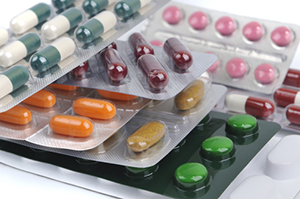 Diabetics must take extra care to look after their kidneys.
Diabetics must take extra care to look after their kidneys.
Medical specialists have identified painkillers that can cause permanent kidney damage and failure for people who suffer type 2 diabetes.
These happen to include some of the most popular and most accessible painkillers on the market. You probably take them regularly yourself.
If you’re diabetic, your kidneys need special care. Eat a healthy diet, exercise, and learn to manage your stress for blood pressure control. Monitor your blood glucose and manage it well. Drink between 1.5 and two liters of fluid without caffeine and sugar every day. Prepare your food at home to avoid most of the salty preservatives added to packaged food. Refrain from smoking.
To add to all this advice, scientists have also discovered that many painkillers cause bleeding in your kidneys, damage the tubules in your kidneys, and inhibit the prostaglandins that increase glomerular filtration rate (the flow rate of filtered fluid through your kidneys). Consequently, these drugs can, in the long term, lead to kidney failure.
The National Institute of Diabetes and Digestive and Kidney Diseases explains that some drugs can cause kidney damage because your body excretes them through your kidneys alone. In other words, unlike alcohol and most recreational drugs, they are not broken down by your liver and passed to your intestines from where they are excreted. They are processed solely by your kidneys.
The National Kidney Foundation specifically warns against nonsteroidal anti-inflammatory drugs (NSAIDs), the most popular category of over-the-counter and prescription painkiller. These drugs provide pain and fever relief and, at higher doses, anti-inflammatory effects.
The most common over-the-counter NSAIDs are Aspirin, ibuprofen, and naproxen, sold under dozens of different brand names. Ketoprofen is available as a gel or patch for muscle pain, and usually on prescription for other conditions. Diclofenac is also sold as skin patches for arthritis and muscle pain and in both tablet and intravenous forms for cancer and other conditions.
They are taken for a wide variety of conditions like arthritis, back pain, inflammatory tissue injuries, and even non-inflammatory conditions like headaches and menstrual pain.
The potential to cause kidney damage is one of the reasons why labels on over-the-counter NSAIDs advise that you do not take them for more than ten days without consulting a doctor.
In some cases the kidney damage is caused by high doses of short-term NSAIDs and the damage is temporary. This is called acute kidney failure. It requires emergency dialysis to clean your blood.
The more worrying disease is called analgesic nephropathy, a chronic kidney disease that is irreversible and leads to kidney failure.
For this reason, the National Kidney Foundation recommends that people at risk of kidney damage, like diabetics, must consult their doctors if they must use NSAIDs in the short term (fewer than ten days). If taken under supervision, this may not cause irreversible kidney damage.
However, if you have conditions like arthritis that needs to be managed with daily painkillers, you will have to find other methods to control the pain, as daily NSAIDs will almost certainly damage your kidneys. The foundation advises that paracetamol, also called acetaminophen, is normally safe. However, this type of medicine has been implicated in liver failure.

 Overcoming IBD
Overcoming IBD Multiple Sclerosis
Multiple Sclerosis Banishing Bronchitis
Banishing Bronchitis Gum Disease Gone
Gum Disease Gone Overcoming Onychomycosis
Overcoming Onychomycosis Neuropathy No More
Neuropathy No More The Prostate Protocol
The Prostate Protocol Brain Booster
Brain Booster
 Ironbound
Ironbound
 Solution for Shingles
Solution for Shingles
 The Bone Density Solution
The Bone Density Solution
 The Ultimate Healing Protocol
The Ultimate Healing Protocol
 The Parkinson's Protocol
The Parkinson's Protocol
 The Chronic Kidney Disease Solution
The Chronic Kidney Disease Solution
 Overthrowing Anxiety
Overthrowing Anxiety The Fatty Liver Solution
The Fatty Liver Solution The Hypothyroidism Solution
The Hypothyroidism Solution
 The End of Gout
The End of Gout The Blood Pressure Program
The Blood Pressure Program
 The Oxigized Cholesterol Strategy
The Oxigized Cholesterol Strategy
 Stop Snoring And Sleep Apnea Program
Stop Snoring And Sleep Apnea Program
 The Arthritis Strategy
The Arthritis Strategy The Vertigo & Dizziness Program
The Vertigo & Dizziness Program The 3-Step Diabetes Strategy
The 3-Step Diabetes Strategy Hemorrhoids Healing Protocol
Hemorrhoids Healing Protocol The Erectile Dysfunction Master
The Erectile Dysfunction Master Weight Loss Breeze
Weight Loss Breeze The IBS Program
The IBS Program The Insomnia Program
The Insomnia Program The Migraine and Headache Program
The Migraine and Headache Program The Neck Pain Solution
The Neck Pain Solution The Menopause Solution
The Menopause Solution The Ejaculation Master
The Ejaculation Master The TMJ Solution
The TMJ Solution The Acid Reflux Solution
The Acid Reflux Solution The Fibromyalgia Solution
The Fibromyalgia Solution The Psoriasis Strategy
The Psoriasis Strategy
What you seriously need to know about pain-killers!!!